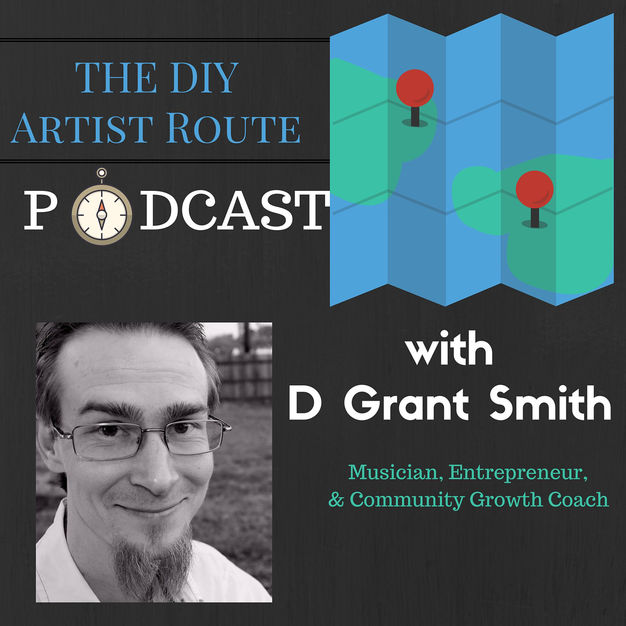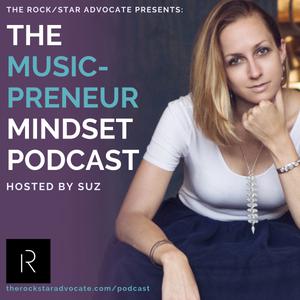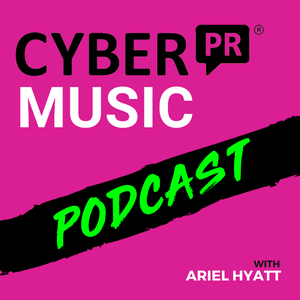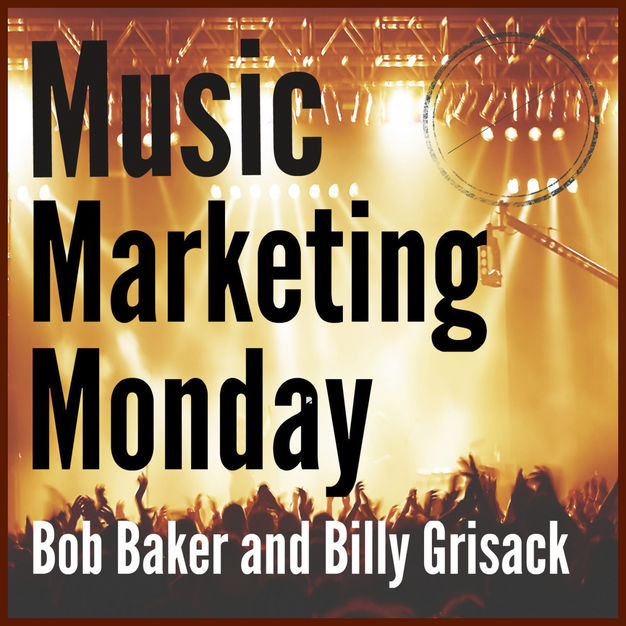
Key Conversations
Cheryl B. Engelhardt
Welcome to Key Conversations, where you can connect with the best of the music business, unlocking the secrets to exploding your music career. Presented by In The Key Of Success.
- 10 minutes 45 seconds617: Nervous System Regulation for Musicians
In this season finale, we dive deep into a crucial topic for musicians: nervous system regulation. Understanding how to master this skill can be transformative for your career and personal well-being.
Episode Highlights:
- What is nervous system regulation?
- How dysregulation manifests in two ways:
- Hypoactivation: Wanting to shut down, hide, or feeling depressed.
- Hyperactivation: Increased heart rate, hypervigilance, perfectionism, and anxiety.
- How dysregulation manifests in two ways:
- The stories and fears that affect musicians:
- Fear of being seen.
- Worry about not being good enough.
- Fear of rejection or criticism.
- The disconnect between mind and body:
- Even if you know you're safe, your body may still react based on past experiences.
- Cheryl’s personal experience with anxiety and regulation:
- Learning to communicate with anxiety as a protective part of herself.
- Cultivating compassion for the body's response to fear.
- Practical tools to regulate your nervous system:
- Down-regulation techniques:
- Breathing through your nose to signal safety to your brain.
- Grounding: Lying on the floor, feeling your feet on the ground, or rubbing your arms.
- Listening to bird songs, singing, humming, or taking a hot bath.
- Up-regulation techniques (for hypoactivation):
- Walking, getting fresh air, or using a hot-and-cold shower.
- Flossing your teeth to focus your energy.
- Down-regulation techniques:
- Why this matters for your music career:
- Shortening the time you spend in dysregulation helps you stay aligned with your goals.
- Regulation enables you to connect authentically with your audience and build the fan base you deserve.
Resources Mentioned:
- Amplify Coaching: If you’re ready to work on your triggers and nervous system regulation, learn more about Cheryl’s trauma-informed coaching at http://www.inthekey.co/coach.
- Releasify App: Download the free Releasify app to elevate your music career and streamline your next release: http://www.inthekey.co/app
Thank you for joining me this season! Share this episode with your musician friends, and I’ll see you next season with more tools and inspiration to help you thrive.
9 December 2024, 10:40 am - What is nervous system regulation?
- 5 minutes 55 seconds616: How to Make The Most of Co-writing
Episode Summary:
For years, I avoided co-writing, assuming it would lead to creative clashes and headaches. But when I decided to make my fourth album a collaborative effort, everything changed. The process opened doors, built amazing friendships, and brought unexpected opportunities. In this episode, I’m sharing my top tips and tricks for successful co-writing sessions, from finding the right collaborators to breaking the ice and setting clear intentions.What You’ll Learn in This Episode:
- Why Co-Writing is Worth It: How collaboration creates connections, opens doors, and leads to surprising opportunities.
- How to Find Co-Writers: Tips for reaching out to communities, attending conferences, and leveraging masterminds like Amplify.
- Nailing the Logistics: Why follow-ups and scheduling integrity are key to making sessions happen.
- Breaking the Ice: Questions and strategies to ease into a session and spark creativity.
- Setting Intentions: The importance of defining goals, understanding parameters, and finding common ground.
- The Magic Question: Discover the simple question that unlocks vulnerability and creativity in any co-writing session.
Key Takeaways:
- Connect and Collaborate: Co-writing is about more than music—it’s a way to deepen relationships and explore new creative avenues.
- Start with Intentions: Be clear on what you and your co-writer want to achieve from the session.
- Lead with Vulnerability: Sharing your own story can create space for honest and emotional songwriting.
- Be Organized: Follow up to ensure the session is on the calendar and stays top of mind for everyone involved.
- Ask the Right Questions: “What’s going on in your life right now?” can lead to breakthrough moments in your music.
Resources Mentioned:
- Join the Amplify Mastermind for collaborative opportunities: www.inthekey.co/amplify.
- Listen to my episode on pitching for tips on inviting collaborators effectively.
2 December 2024, 10:27 am - 8 minutes 15 seconds615: Level Up Your Live Show Banter
Episode Summary:
Are you ready to transform your live shows? In this episode, we dive deep into the art of live show banter—the stories, conversations, and moments between songs that can make or break your audience's connection with you. Whether you're performing on a big festival stage, at an intimate venue, or even streaming live online, mastering your banter is key to building stronger relationships with your fans and achieving your career goals.What You’ll Learn in This Episode:
- Why repetitive, uninspired song intros (e.g., "This next song is about…") don't work.
- How to craft engaging, specific anecdotes that draw your audience in.
- Tips on using "Easter eggs" in your storytelling to enhance your audience's experience.
- The importance of being clear on your goals—whether it's growing your email list, selling merch, or building your fan base.
- Creative ways to involve fans in achieving your goals during live shows (e.g., using QR codes, contests, or fan volunteers).
- How to avoid feeling like a "nag" while still effectively communicating your goals to your audience.
Actionable Tips:
- Make It Relatable: Shift the focus from you to your audience. Share stories or details that connect them to your music on a deeper level.
- Set a Clear Goal: Decide on one primary goal for your show—like growing your email list—and craft your stage banter around that.
- Get Creative: Use props like QR codes, fan volunteers, or live contests to make your audience feel like part of your journey.
- Tease and Surprise: Mention fun details or Easter eggs about your songs that give your audience something to listen for.
- Engage Your Fans: Involve your fans in your success—whether they’re collecting email addresses or participating in a contest, make it a team effort!
Key Quote:
"The key to great live show banter is connection. When you share stories that engage and entertain, your audience becomes a part of your journey—and that’s where the magic happens."Resources Mentioned:
- Episodes to Revisit:
- The Musician Success Cycle (601: https://open.spotify.com/episode/3TNDXdMqWasWoow29hyJRG?si=6691a17d095448b9)
- Goal Setting (603: https://open.spotify.com/episode/4y8PFJqDRHeApxEM1W4RDx?si=3f869b1b18294571)
- Quick Tools: QR codes for email signups, contests, and fan involvement strategies.
Follow & Subscribe:
Don’t miss future episodes filled with actionable tips to grow your music career. Follow this podcast wherever you listen, and connect with me on IG: http://www.instagram.com/musiccareercoach to keep the conversation going!25 November 2024, 7:35 am - 11 minutes 5 seconds614: Success Systems for Musicians
Episode Summary
In this episode, we’re diving deep into the magic of systems and how they can transform your personal life and music career. Whether you’re feeling overwhelmed or struggling with organization, the key might be as simple as putting the right systems in place—or optimizing the ones you already have. I’ll share the systems I use daily to stay productive, balanced, and stress-free. From calendars to apps and platforms, get ready for a complete toolkit to help you rock your life and career!What You'll Learn in This Episode:
- What a system is and how it simplifies your life and business.
- The importance of creating shared systems with partners and teams.
- How to use calendars effectively for balance and communication.
- Tools for managing finances, music metadata, pitches, and collaborations.
- Why you need platforms like Kajabi, Airtable, and Telegram.
Key Tools and Resources Mentioned:
- Calendars:
- iCal & Google Calendar - Organize your life into color-coded categories.
- QuickBooks Online - Track spending, generate reports, and simplify taxes.
- Kajabi - All-in-one platform for email lists, websites, digital products, and more.
- Airtable - Advanced organization for pitches, metadata, and projects.
- Disco - Perfect for music licensing, metadata storage, and playlist sharing.
- Trackstage - Robust client and pitch tracking (growing alternative).
- Trello - Visual project management for teams.
- Slack - Communication platform for groups.
- Telegram - Voice memo and messaging tool with boundary-friendly features.
- Airtable (secure base) - Keep your passwords organized and accessible.
- Google Chrome Bookmarks & Folders - Stay organized across platforms.
- Marco Polo and WhatsApp - Alternatives for messaging, though not my favorites.
Links to Learn More or Try These Tools:
- Quickbooks Online: http://www.inthekey.co/qbo
- Kajabi: http://www.inthekey.co/kajabi
- Free Airtable template: https://www.inthekey.co/outreachairtable
- Disco: https://www.disco.ac/
- Trackstage: https://mytrackstage.com/
- Telegram: https://telegram.org/
- Trello: https://trello.com/
Subscribe & Review:
Love the episode? Don’t forget to subscribe, rate, and review the podcast to help more people discover the power of systems!18 November 2024, 7:03 am - 6 minutes 9 seconds613: The 3 Tiers of a Musician's "Productivity"
In this episode, Cheryl dives into the three different types of productivity, breaking down the benefits and limitations of each, and revealing which one truly makes the biggest difference in a music career.
Key Highlights:
- Rethinking Hustle Culture:
Cheryl kicks off the episode by challenging the “hustle culture” mentality, which often fuels a scarcity mindset—the belief that if you don’t act immediately, someone else will, or that opportunities won’t come around again. She explains how this mindset can create a constant sense of urgency, stemming from a lack of trust in one’s own abilities. - Recognizing Scarcity Mindset as Urgency:
Cheryl emphasizes the importance of recognizing scarcity thinking when it shows up as urgency, reminding listeners that skills and opportunities are abundant when approached from a grounded, confident place.
The 3 Types of Productivity:
- Busy Work
Cheryl describes busy work as tasks that look productive but don’t actually move the needle. She shares a personal example from her early career of spending hours putting up posters before shows, an effort that resulted in minimal audience turnout. Busy work may feel satisfying but often lacks tangible results. - Being Productive
Moving up a level, Cheryl talks about productive work—tasks that do create results but often come with the expectation of always “doing” something. Productivity can leave little room for rest, as it often implies a constant drive to produce, rather than strategic or balanced action. - Being Effective
Cheryl reveals that the ultimate goal is effectiveness. When you’re effective, you’re intentional and strategic, achieving results without needing to constantly stay busy or productive. Effective work allows for balance, creating space for rest and other aspects of life, leading to more sustainable success in your career.
The Power of Being Effective:
Cheryl encourages listeners to focus on becoming effective rather than just busy or productive. She explains that effectiveness means hitting your goals while allowing space for rest, relationships, and opportunities to show up naturally.Join Amplify for More Effective Work Strategies:
For those looking to practice effectiveness in real time, Cheryl invites listeners to check out her Amplify mastermind. This monthly program for career musicians offers live Hot Seat coaching calls, access to productivity resources, and exclusive M.A.D.E. Days—guided, co-working sessions where members try out effective work techniques like turbo blasts and Zamboni sessions. Learn more at http://www.inthekey.co/amplify.Links and Resources:
- Join Amplify: http://www.inthekey.co/amplify
Follow Cheryl on IG:
- Instagram: http://www.instagram.com/musiccareercoach
11 November 2024, 3:45 pm - Rethinking Hustle Culture:
- 13 minutes 39 seconds612: Sneak Peek into Cheryl's Income Streams
In this episode, Cheryl Engelhardt shares her personal revenue generation strategy as a successful independent musician. She provides a transparent look into the various income streams that sustain her music career, acknowledging that the options available may differ based on genre and individual circumstances. This episode is packed with real-world insights into income diversification and highlights the importance of financial resilience in the unpredictable music industry.
Key Takeaways:
- Licensing Music for TV, Film, and Commercials:
Cheryl explains how she licenses her music for various media, with commercials being her top revenue source. Starting her career in the commercial world helped her establish valuable connections, leading to a significant $15,000 paycheck from a single ad. - Sales and Streaming:
Cheryl highlights the importance of both physical and digital music sales, especially for New Age music fans. With over 3 million streams on her latest work, she leverages platforms like iTunes, Bandcamp, and Amazon to boost fan engagement and chart positions. - Live Performances and Merch Sales:
Engaging live shows have also been a lucrative avenue, with memorable gigs netting up to $10,000. Cheryl emphasizes the value of selling merchandise and CDs directly to fans during these performances. - Custom Music and Freelance Composing:
From podcasts to commercials, Cheryl has provided custom compositions for various projects. As a freelance commercial composer, she collaborates with jingle houses and ad agencies, navigating the bidding process to secure lucrative gigs. - Session Work and Vocal Performance:
With SAG-AFTRA membership, Cheryl supplements her income through unionized session fees, voiceovers, and recording services, even lending her voice for narration on platforms like Audible. - Teaching and Coaching:
Cheryl’s decade-long experience teaching piano and vocals provided consistent income while allowing her to grow as a musician. Her expertise in coaching musicians now supports her broader goal of helping artists thrive financially. - Income Diversification and Financial Security:
Cheryl underscores the importance of having multiple income streams to weather industry shifts. Her experience with her Amplify mastermind group during the pandemic demonstrated the power of income diversity, enabling her and her clients to thrive when touring ceased.
Quotes:
- "It’s okay to advocate for yourself and ask for more."
- "Diversity in your income sources is key, but also setting up systems for each one is paramount."
Resources Mentioned:
- Join Amplify today to get ahead of the curve: http://www.inthekey.co/amplify
- Listen to Cheryl’s episode on the Musician Success Cycle for more insights on setting clear career goals.
Join the Conversation:
Have questions about income diversification for musicians? Share your thoughts with Cheryl on social media (http://www.instagram.com/musiccareercoach) or explore her coaching programs (http://www.inthekey.co/coach) to optimize your revenue streams!4 November 2024, 3:26 pm - Licensing Music for TV, Film, and Commercials:
- 8 minutes 42 seconds611: New Project, New Artist Profile? (Truth About Branding)
New project new artist name? (Deep branding for musicians)
Episode Summary:
In this episode, Cheryl dives into the often confusing world of branding for musicians. She explores how to align your brand with your true values, how to identify and connect with your ideal fan, and how to manage multiple music projects under a single, cohesive brand. Cheryl shares personal experiences and tips on how to avoid the common pitfalls of rebranding with every new project. Learn how to stay consistent with your identity while also allowing room for artistic growth and change.Key Takeaways:
- Your Brand and Commitment Statement:
- Your brand should align with your core values and artistic mission. Always refer back to your commitment statement (as discussed in a previous episode).
- Identify Your Ideal Fan:
- Narrow down your target audience. Focus on the specific traits of your super fan to guide your branding decisions. Remember, it’s better to focus on a niche group than trying to appeal to everyone.
- Branding as the Overlap:
- Branding happens at the intersection of your values and your fans’ values. Your fan base doesn't have to be a mirror of yourself, but there should be enough alignment to resonate.
- Managing Multiple Projects:
- Don't feel the need to rebrand for every new project or musical pivot. Fans follow you as an artist, not just one genre. Keep the connection to your core identity even if your music evolves.
- Consistency in Design:
- While it’s natural for album artwork and visuals to evolve, maintain some key consistent elements (e.g., color schemes, fonts) to build familiarity with your audience.
- Aligning Your Brand with Your Music’s Mood:
- Make sure your visuals match your music’s style. Cheryl shares an example of helping an artist align their website design with the darker tone of their music, creating a more cohesive experience for fans.
Pro Tip:
- Curate a brand that feels authentic to both you and your ideal fan. Avoid unnecessary stress by managing multiple personas or accounts. Longevity in your career adds authority to your brand over time.
Download:
For more branding tips, get access to Cheryl's Free App RELEASIFY: http://www.inthekey.co/app, where she shares exclusive tips, templates, and more!Please like, download and share this podcast to keep it going! http://www.inthekey.co/podcast
28 October 2024, 8:19 am - Your Brand and Commitment Statement:
- 6 minutes 59 seconds610: The Power of House Concerts
Episode Summary: In this episode, Cheryl B. Engelhardt dives into one of the key secrets to her successful touring career—house concerts! Discover how Cheryl managed to never lose money on tour by booking intimate performances in fans’ homes, even on her "off" days. Whether you're a touring musician or someone looking for a unique way to engage with your fanbase, house concerts can be a lucrative and powerful way to grow your superfans while adding flexibility to your tour schedule. Cheryl shares her best tips for booking, structuring, and maximizing these personal events.
Key Takeaways:
- House Concerts as a Game-Changer: Cheryl shares how booking house concerts between regular venue gigs helped her grow her fanbase and never lose money on tour.
- Personal Connections with Fans: Performing in a fan’s living room allows for deeper connections, turning attendees into superfans.
- Seasonal Opportunities: House concerts aren’t limited to tours. Cheryl highlights how these events work well during holidays and between album releases.
- Flexible Formats: Whether it's scaling down your rock band to an acoustic set or performing solo, house concerts offer adaptability to fit any setting.
- Booking Tips: Use your email list or do a Google search to find local house concert communities. Cheryl walks through how to approach fans about hosting a concert.
- Monetization Strategies: Whether it’s securing a guaranteed fee, passing around a tip jar, or selling merch at marked-up prices, Cheryl shares various ways to ensure you walk away financially secure.
- The Power of Partnership: Cheryl emphasizes the importance of a win-win mindset when working with hosts and the professional steps she takes to ensure everything runs smoothly.
- Making it Easy for the Host: From providing an introduction script to reminding the audience about merch and tips, Cheryl’s approach is all about easing the pressure on the host while maximizing the event's impact.
- Creating Future Opportunities: Cheryl shares her technique of planting the seed for future bookings before the concert even ends, ensuring that every house concert can lead to the next one.
Resources Mentioned:
- Email Template Bundle: Want to invite your fans to host a house concert? Cheryl has an email template ready for you! Download it with an exclusive discount in her incredible app RELEASIFY: http://www.inthekey.co/app.
- Make sure to like and subscribe and share! http://www.inthekey.co/podcast
21 October 2024, 5:30 am - 11 minutes 16 seconds609: The Truth About How Musicians Self-Sabotoge
Uncovering Self-Sabotage: How to Expand Your Life and Stop Getting in Your Own Way
In this episode, we’re diving into a deeply personal topic that affects many musicians: self-sabotage. We'll explore how to overcome the mental and emotional barriers that keep you from growing your music career and achieving your fullest potential.
Key Topics Covered:
Thermometers as an Analogy for Comfort Zones
We often adjust our internal "thermometers" to maintain what's familiar, even if it's not comfortable. This analogy illustrates how what we've normalized in the past may still dictate our present lives and music careers.The Comfort Zone Explained
Familiarity is mistaken for safety, which is why we stay in comfort zones—whether it’s financial struggles or performance anxiety. Even if it’s detrimental, our brains cling to what’s worked in the past for survival.Examples of Self-Sabotage
Many musicians sabotage their success due to normalized beliefs like the “starving artist” mentality. When new opportunities arise that push us beyond that comfort zone, we may subconsciously pull back to what’s familiar, even if it's harmful.Rewiring Your Brain for Success
The key to expanding your life is to step out of your comfort zone in small, manageable ways and gradually increase that range. Whether it’s overcoming stage fright or growing your fan base, tiny steps make the change sustainable.Practical Tips to Stretch Your Comfort Zone
Start small—like performing a single song on Instagram Live or at an open mic. These gradual steps help expand your comfort zone without overwhelming your nervous system.Breathwork for Nervous System Regulation
Learning to breathe through your nose helps signal to your brain that you're safe, reducing anxiety. This technique can be especially helpful before performances or during moments of fear.Understanding Trauma and Its Impact on Your Career
Whether you’ve experienced “capital T” trauma (major events) or “lowercase t” trauma (chronic issues like emotional neglect), these past experiences can impact your ability to thrive in your music career today. Healing these wounds helps break the cycle of self-sabotage.How Coaching Can Help
As a certified trauma-informed coach, I help musicians identify and break through their self-sabotage patterns. If you're ready to heal past traumas and expand your life, let's work together.
Resources Mentioned:
- AmpliMansion Retreat – Experience luxury and breakthroughs at this exclusive retreat designed to help you expand your comfort zone and normalize success.
- Coaching with Cheryl – Learn more about one-on-one coaching and how I can help you take your music career to the next level.
If you're ready to break through your comfort zone, expand your life, and stop self-sabotaging your music career, this episode is for you.
14 October 2024, 10:49 am - 7 minutes 50 seconds608: Turn Social Followers to Email Fans
Summary: In this episode of Music Business Breakthrough, we dive into the essential strategies for growing your fan base by integrating social media with your email list. Cheryl breaks down why email is still the most effective tool for connecting with fans and driving action, whether it’s purchasing tickets, buying merch, or streaming your songs. Discover actionable tips on how to convert social media followers into email subscribers and build a more personal connection with your audience.
Key Takeaways:
- Why Email Over Social Media: While social media is a “one-to-many” platform, email feels more personal, leading to higher engagement and action. Email remains the most effective way to request support, whether that's for sales, ticket purchases, or streams.
- Clarity in Your Requests: On social media, focus on one clear, singular request to drive followers to your email list, rather than overwhelming them with multiple calls to action.
- Creating an Exclusive Landing Page: Make it easy for people to sign up by creating a dedicated landing page with minimal fields (just name and email). Avoid using your homepage with cluttered forms.
- Keep Your Email List Engaged: Always let your email list know about important news first—before posting on social media. This builds trust and loyalty.
- Encourage Sharing: Write pre-made text for your fans to share your sign-up page, making it easy for them to spread the word about your music.
Tools and Resources Mentioned:
- Kajabi: Cheryl’s recommended platform for hosting websites, mailing lists, podcasts, and digital products. Sign up for a free trial and see if it’s the right fit for your business.
- Releasify: Cheryl’s app offers tons of email templates, including welcome series templates, fan templates, and release templates to help you get started with email marketing. Download it today!
Pro Tips:
- Personalize Your Email List: Don’t refer to it as a “newsletter.” Instead, call it your “community” or “insider group” to create a more personal feel.
- Timing is Key: Stick to your promise of notifying your email subscribers first, even if it's just an hour earlier than social media.
- Encourage Sharing: Provide easy-to-copy text and links for your fans to share your music, helping you grow your fan base organically.
Action Steps:
- Create a strategy around growing your email list, starting with building a dedicated landing page.
- Use social media to funnel followers into your email list by being clear and specific with your calls to action.
- Keep your email list engaged by delivering exclusive content and staying consistent with updates.
Links:
7 October 2024, 11:38 am - 9 minutes 9 seconds607: Overcoming Stage Fright: Healing Performance Anxiety from the Inside Out
In this episode, we dive into the complex yet familiar feelings of stage fright, performance jitters, and anxiety that many musicians face. Whether it's stepping onto a stage, presenting to a live audience, or even sending an important email to your fans, these emotions often stem from something deeper—fear of being seen. Cheryl breaks down the origins of this fear and provides actionable steps to heal it.
What Is Covered:
- The root of performance anxiety: Fear of being seen.
- How early childhood experiences can manifest as stage fright.
- Rewiring your nervous system to feel safe in the spotlight.
- A step-by-step guide to having a conversation with your younger self.
- How addressing past experiences can reduce anxiety, panic attacks, and other somatic symptoms.
- The path to healing and unlocking your full performance potential.
Key Takeaways:
The fear of being seen often stems from childhood experiences where we were seen but it didn’t go well.
Performance jitters are your body’s way of saying it doesn’t feel safe, but you can rewire your nervous system to change this.
Healing your relationship with your younger self can help you let go of the fear and expand your ability to perform confidently.
Practice connecting with your younger self and asking what they needed back then, offering reassurance from your present self.
Rewiring takes time, so be gentle with yourself and engage in this practice regularly before performances.
Resources Mentioned:
Cheryl’s one-on-one coaching: http://www.inthekey.co/coach
Download the FREE Releasify app for more resources: http://www.inthekey.co/app
30 September 2024, 11:01 am - More Episodes? Get the App
Your feedback is valuable to us. Should you encounter any bugs, glitches, lack of functionality or other problems, please email us on [email protected] or join Moon.FM Telegram Group where you can talk directly to the dev team who are happy to answer any queries.
 Break the Business Podcast
Break the Business Podcast
 DIY Artist Route Podcast
DIY Artist Route Podcast
 Music-Preneur Mindset Podcast
Music-Preneur Mindset Podcast
 Cyber PR Music Podcast
Cyber PR Music Podcast
 Music Marketing Monday
Music Marketing Monday